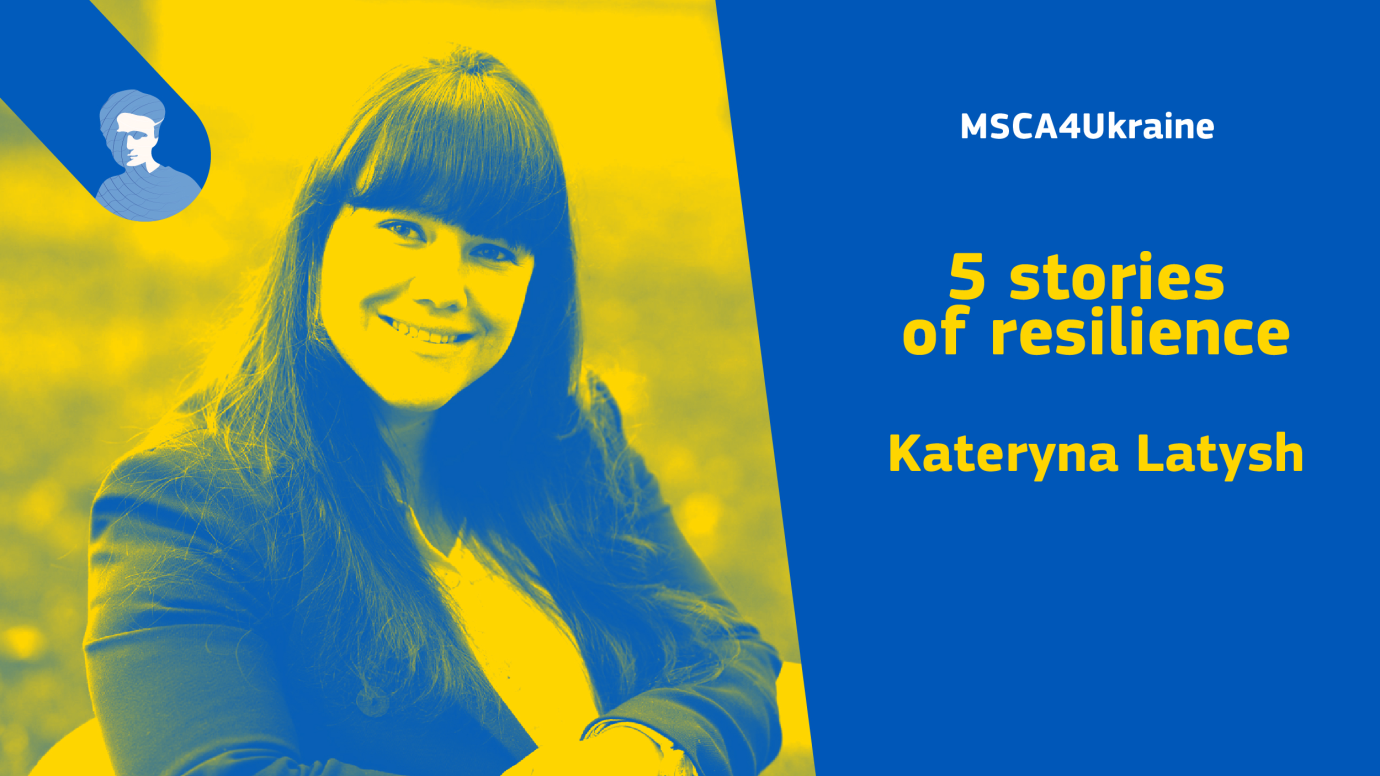Overcoming accountability gaps in war times
MSCA4Ukraine fellow Kateryna is researching digital forensics at Vilnius University. She hopes her work will help international crime investigations in her home country and beyond.

Fleeing Ukraine
Heavy shelling by advancing Russian forces in the early months of 2022 left Kateryna and her family with no other choice but to flee their home in Kharkiv.
They drove for days without respite on their way to Lithuania, just to be told that the road they planned to continue on had been completely destroyed. It was only by a lucky coincidence that Kateryna, her young child and husband did not reach that road earlier.
“It was very frightening; my city was heavily shelled and completely surrounded. We drove for three days; the next morning, we finally stopped to buy some food. That’s when we were told that the road we were going to take no longer existed. It had been destroyed by artillery fire. Thank God we didn't reach it.”
A new research field in Lithuania
Before Russia’s war of aggression, Kateryna had been teaching criminalistics, forensics and investigative techniques at Yaroslav Mudryi National Law University for eight years.
The world witnessed unimaginable suffering in Bucha, Irpen, and in Kateryna’s home district of Kharkiv.
Thanks to satellite imagery, the horrors that took place were exposed for the world to see. These tragic events made Kateryna reflect on how she could best use her expertise.
Upon eventually arriving in Lithuania, she was able to join the Centre for Ukrainian Law at Vilnius University, where she is currently performing her research with support from a MSCA4Ukraine grant and, since December 2023, serving as a Deputy Head of this Centre.
“I began to think about how my knowledge and skills could contribute to the process of justice. So I found a new field for my research: digital forensics and its possibilities for investigation and trial, especially in war conditions.”
Her research specifically focuses on the investigation of crimes committed in Ukraine and on investigative techniques that could facilitate this process.
Kateryna is confident that her findings will not only help Ukraine but also contribute to other countries’ international crime investigation capacity and their quest for justice.
A secondment back at Yaroslav Mudryi National Law University in Ukraine will enable Kateryna to work closely with her former colleagues who have been involved in the investigation process, and to cooperate with NGOs documenting international crimes in Ukraine.
“I hope that my work will support overcoming the accountability gaps for war crimes in the future. I am so happy that with MSCA4Ukraine I have a tremendous chance to continue my research.”
About MSCA4Ukraine
MSCA4Ukraine, funded by the European Commission under the Marie Skłodowska-Curie Actions, is part of the EU’s response to Russia’s invasion of Ukraine and to the need for action to support displaced researchers from Ukraine.
It is enabling 125 fellows to continue their work in Europe, helping to safeguard Ukraine’s research and innovation system and the freedom of scientific research at large.
Last updated:


